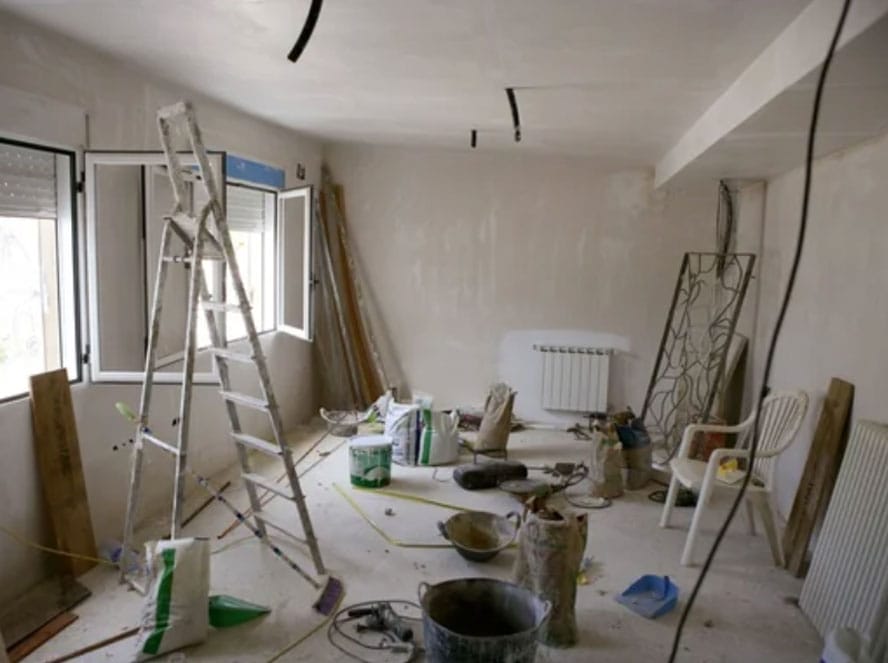
Strategies for Successful Fix And Flips – Tips, Techniques, and Advice
Flipping houses can be tough, especially when cash flow is tight.
Hard money loans offer a solution.
This article will guide you through using hard money strategies to make your fix-n-flip deals successful.
Key Takeaways
- Hard money loans give quick cash for fix-and-flip projects, focusing on the home’s future value, not your credit score. This means you can start fixing up houses faster.
- Qualifying for a hard money loan is easier than traditional ones. You need a decent credit score, some cash ready for down payment and repairs, and maybe some experience in flipping houses.
- You must figure out the after – repair value of a house before getting a loan. This helps you know if fixing and flipping it will make good money.
- Using hard money loans lets you buy and fix properties quicker than waiting for bank loans. This can lead to making more money in real estate.
- Always talk clearly with your hard money lender to avoid surprises. They can offer advice and help get better interest rates which can save you money during your project.
Understanding Hard Money Loans for Fix-and-Flip Projects

Hard money loans offer a unique advantage for fix-and-flip projects, particularly in the fast-paced world of real estate investment.
These types of loans provide quick access to capital, making them ideal for purchasing properties that need immediate renovation.
Unlike traditional bank loans, hard money lenders focus on the property’s potential value after repairs rather than the borrower’s credit history.
This opens up opportunities for real estate investors to secure funding quickly and start their project without delay.
The key aspect of hard money loans lies in their short-term nature, typically ranging from one to five years.
This makes them perfect for flipping houses where the goal is to renovate and sell the property rapidly.
Investors find this financing option attractive since it allows them to leverage reliable capital while working on transforming distressed properties into profitable investments. With faster approval times and less paperwork compared to conventional loans, hard money strategies become an essential tool for successful fix-n-flip deals in today’s competitive market.
Advantages of Hard Money Loans in Fix-N-Flip Deals

Hard money loans offer quick approval and funding for fix-and-flip projects, making them ideal for seizing lucrative real estate investment opportunities.
The easy qualification process and ability to leverage reliable capital further boost the appeal of hard money loans in property flipping.
Are You Flipping
Houses in Arizona?
Need a reliable hard money lender on your team?
We would love to be a choice on
your list of lenders to interview.
Quick Approval and Funding
Hard money loans stand out for their quick approval and funding, which is key in the fast-moving real estate market.
For investors looking to fix and flip properties, timing can mean the difference between snagging a great deal or missing out.
These loans get processed much faster than traditional bank loans. Often, lenders can approve your loan in just a few days. This speed allows you to act quickly on investment opportunities.
Getting funds rapidly helps you start your property renovation sooner. In the world of flipping houses, starting work quickly can lead to higher profits and more successful deals.
With top rated hard money lenders, once approved, you could have access to the cash within 24 hours.
This efficiency makes it easier for you to purchase properties and begin renovations without delay, keeping your projects moving forward smoothly.
Easy Qualification Process
Getting a hard money loan for fix-and-flip deals is simpler than you might think. You don’t need perfect credit scores or long work history records. Lenders focus more on the property’s potential value after repairs rather than your financial past.
This makes qualifying for financing much easier for real estate agents looking into flipping houses.
Lenders quickly review your project plans and the property’s current state to decide. They want to see that your flip has good potential to turn a profit.
This approach helps investors secure funding fast, even if they’ve faced financial challenges before.
With less emphasis on personal finances, you can focus more on finding great investment opportunities and turning distressed properties into profitable investments.
Allows Leverage of Reliable Capital

Hard money loans enable leveraging reliable capital for fix-and-flip projects. This allows investors to secure funds based on the property’s value, rather than personal financial history, making it more accessible.
With this type of financing, real estate agents can maximize their purchasing power and take advantage of profitable investment opportunities in the ever-evolving real estate market.
By leveraging reliable capital through hard money loans, investors can swiftly fund their fix-and-flip ventures and capitalize on short-term wealth-building strategies tailored towards property flipping and renovation financing options.
How Fix and Flip Hard Money Loans Work
Fix and flip hard money loans involve a qualification process, assessment of after-repair value, and allocation of renovation financing.
Qualification Process

To qualify for a fix and flip hard money loan, real estate agents need to demonstrate strong property value potential. They must provide proof of funds for the down payment and renovation costs.
Additionally, they should show some experience in flipping properties or managing similar projects. Lenders will also consider the property’s location, condition, and after-repair value to assess its suitability for financing.
Real estate agents seeking fix-and-flip loans must meet basic financial criteria such as offer evidence of available funds; showcase relevant experience in handling similar projects; while also demonstrating the potential growth in property value after repairs.
After-repair Value Assessment

Assessing the after-repair value is vital for successful fix-and-flip projects. It involves determining the property’s potential worth after renovations, considering factors such as location, market trends, and comparable sales.
By accurately gauging this value, real estate agents can make informed decisions on financing and potential profit margins. This assessment guides in securing suitable hard money loans and ensures that the project aligns with investment goals.
Furthermore, keeping an eye on market dynamics and understanding how they impact a property’s post-renovation value is crucial. Analyzing these factors enables real estate agents to strategize effectively and optimize their fix-and-flip deals for maximum returns.
Allocation of Renovation Financing
Renovation financing is crucial for fix-and-flip projects. It involves allocating funds for repairs and upgrades to enhance the property’s value.
This funding plays a key role in ensuring that the renovation process runs smoothly, allowing you to maximize the investment potential of the property.
By leveraging renovation financing, real estate agents can effectively transform distressed properties into lucrative assets, contributing to their short-term wealth building and overall real estate investment strategies.
Working with Hard Money Lenders for Successful Flipping

When working with hard money lenders, maintain a transparent line of communication to ensure mutual understanding and trust. Establish clear timelines and expectations regarding the fix-and-flip project.
Coordinate with reliable contractors and appraisers for accurate cost estimates and property valuations. Utmost transparency is crucial in all financial transactions, ensuring a successful collaboration between real estate agents and hard money lenders.
Utilize the expertise of hard money lenders to navigate complex funding processes efficiently. Leverage their industry knowledge to secure competitive interest rates that align with your investment goals.
Strategically negotiate loan terms tailored to fit your short-term wealth-building strategies effectively while capitalizing on quick property purchase funding opportunities.
Common Scenarios for Utilizing Fix and Flip Loans

Conclusion

Successfully funding fix-and-flip projects with hard money strategies is critical for real estate agents.
These short-term wealth-building opportunities leverage reliable capital, allowing quick property purchase funding and renovation financing.
Working with hard money lenders to navigate complexities in the realm of real estate investing can lead to profitable investments.
Understanding fix-and-flip loans and the advantages they offer underpins successful investment strategies, making them tailored towards ever-evolving market trends.
FAQs
What are hard money loans and why are they beneficial for fix-and-flip projects?
Hard money loans provide quick access to capital based on the future value of the home rather than the borrower’s credit score. They are beneficial for fix-and-flip projects because they allow investors to start renovations quickly and capitalize on real estate opportunities without the lengthy approval processes associated with traditional bank loans.
How do I qualify for a hard money loan for a fix-and-flip project?
To qualify for a hard money loan, you generally need cash available for a down payment and repairs, and possibly some experience in flipping houses. Lenders focus on the property’s potential value after repairs rather than your financial history, making it easier for real estate investors to secure funding.
What is the importance of assessing the after-repair value (ARV) of a property?
Assessing the ARV is crucial because it helps you understand the potential profitability of a fix-and-flip project. Knowing the ARV allows you to make informed decisions about financing, ensure the project aligns with your investment goals, and gauge the property’s worth after renovations.
How quickly can I receive funding from a hard money loan?
Hard money loans are known for their quick approval and funding times. Once approved, you could have access to the cash within 24 hours with LM2 Investments, many lenders take 3 to 5 days to fund, enabling you to act swiftly on investment opportunities and start renovations sooner.
What are some common scenarios where fix-and-flip loans are utilized?
Fix-and-flip loans are commonly used for purchasing outdated properties in decent locations to renovate and resell, acquiring distressed properties for quick renovations, financing property acquisitions in competitive markets, and covering the costs of extensive property rehabilitation.
How can I work effectively with hard money lenders for successful flipping?
Maintain clear communication with your lender, establish clear timelines, and have accurate cost estimates. Utilize the lender’s expertise to navigate funding processes efficiently and negotiate loan terms that fit your investment strategy.
What are the advantages of using hard money loans for fix-and-flip deals?
The main advantages include quick approval and funding, an easy qualification process, and the ability to leverage reliable capital. This makes hard money loans ideal for seizing lucrative real estate investment opportunities and for investors looking to quickly renovate and sell properties for profit.
